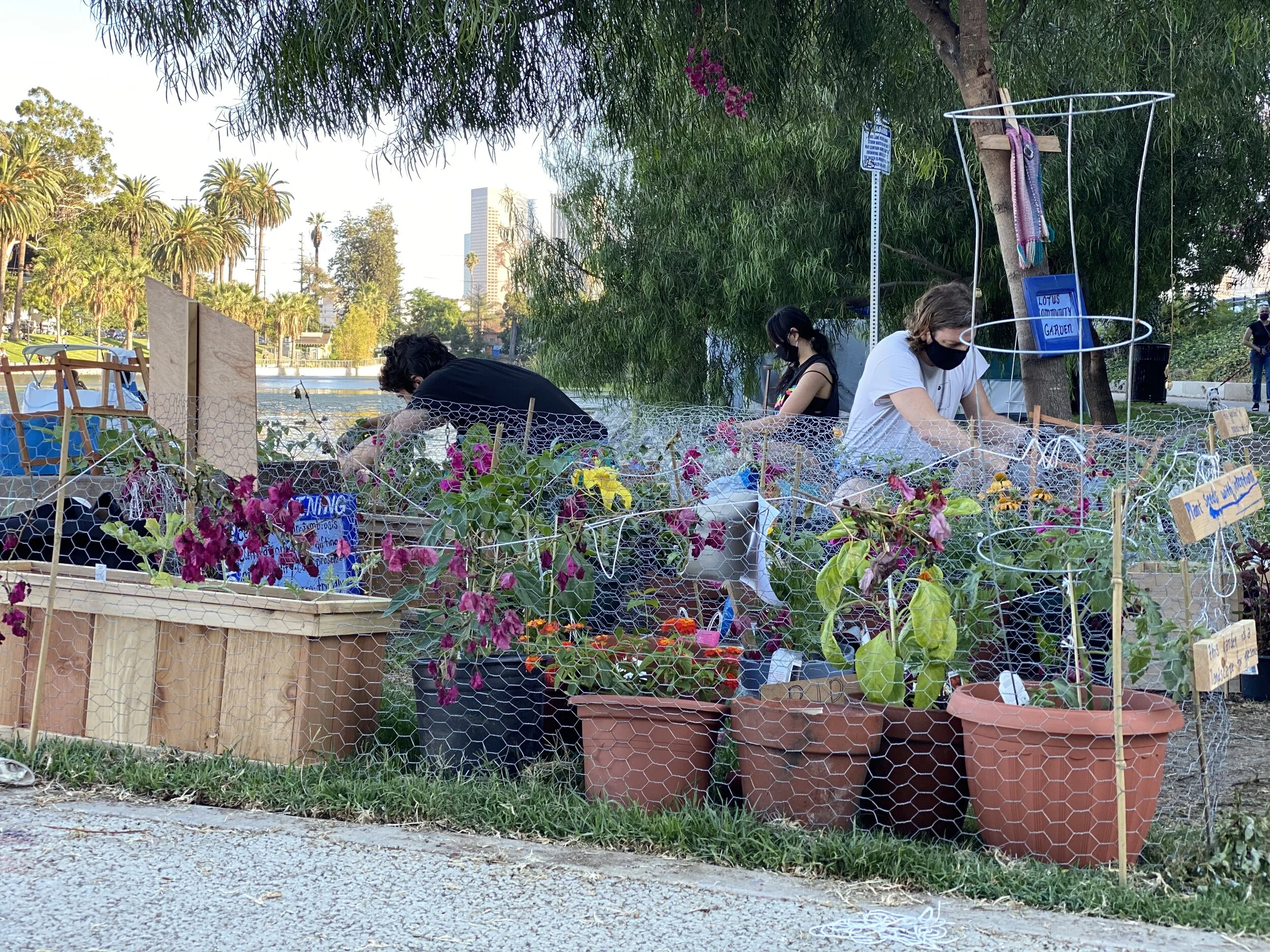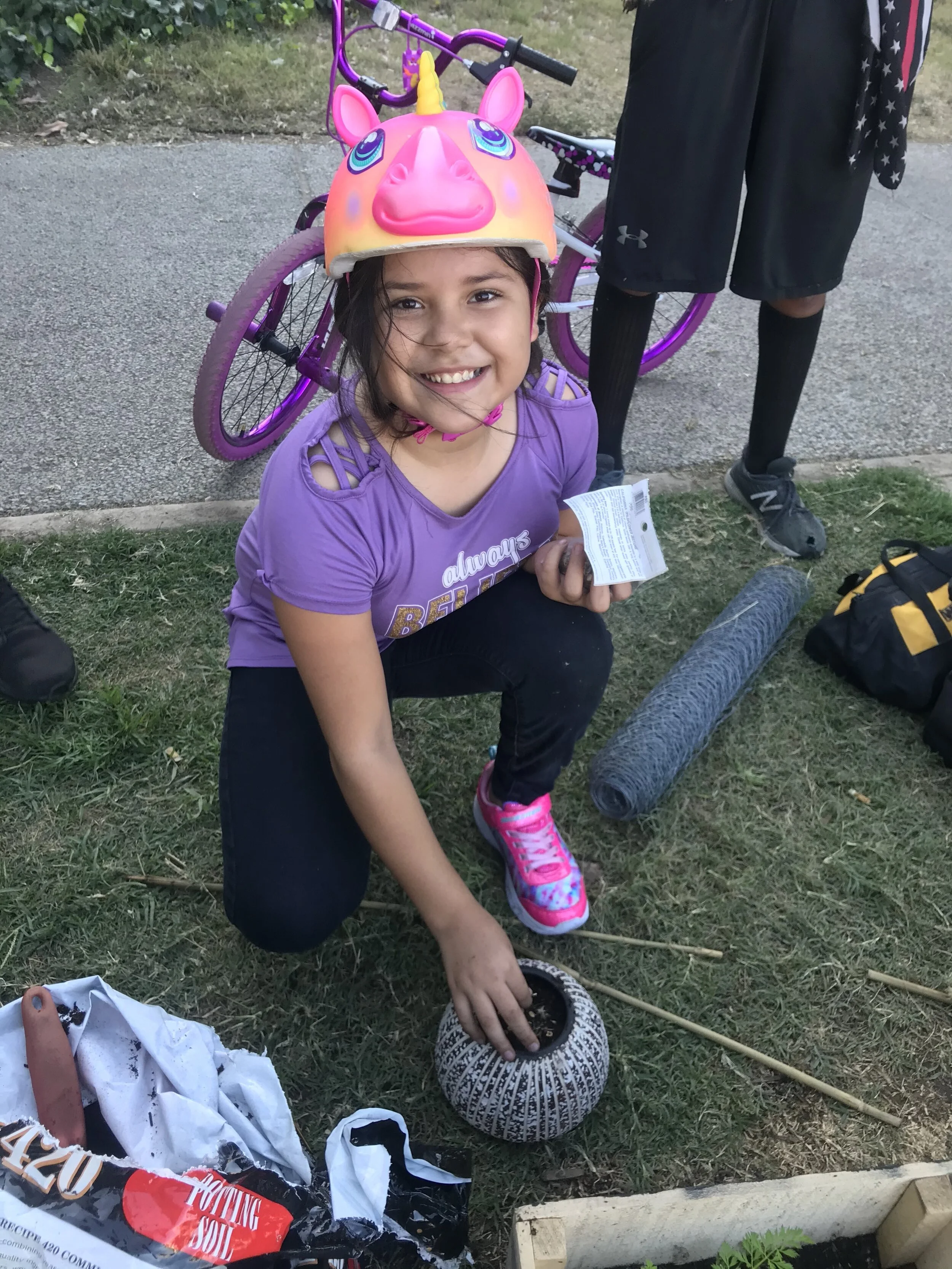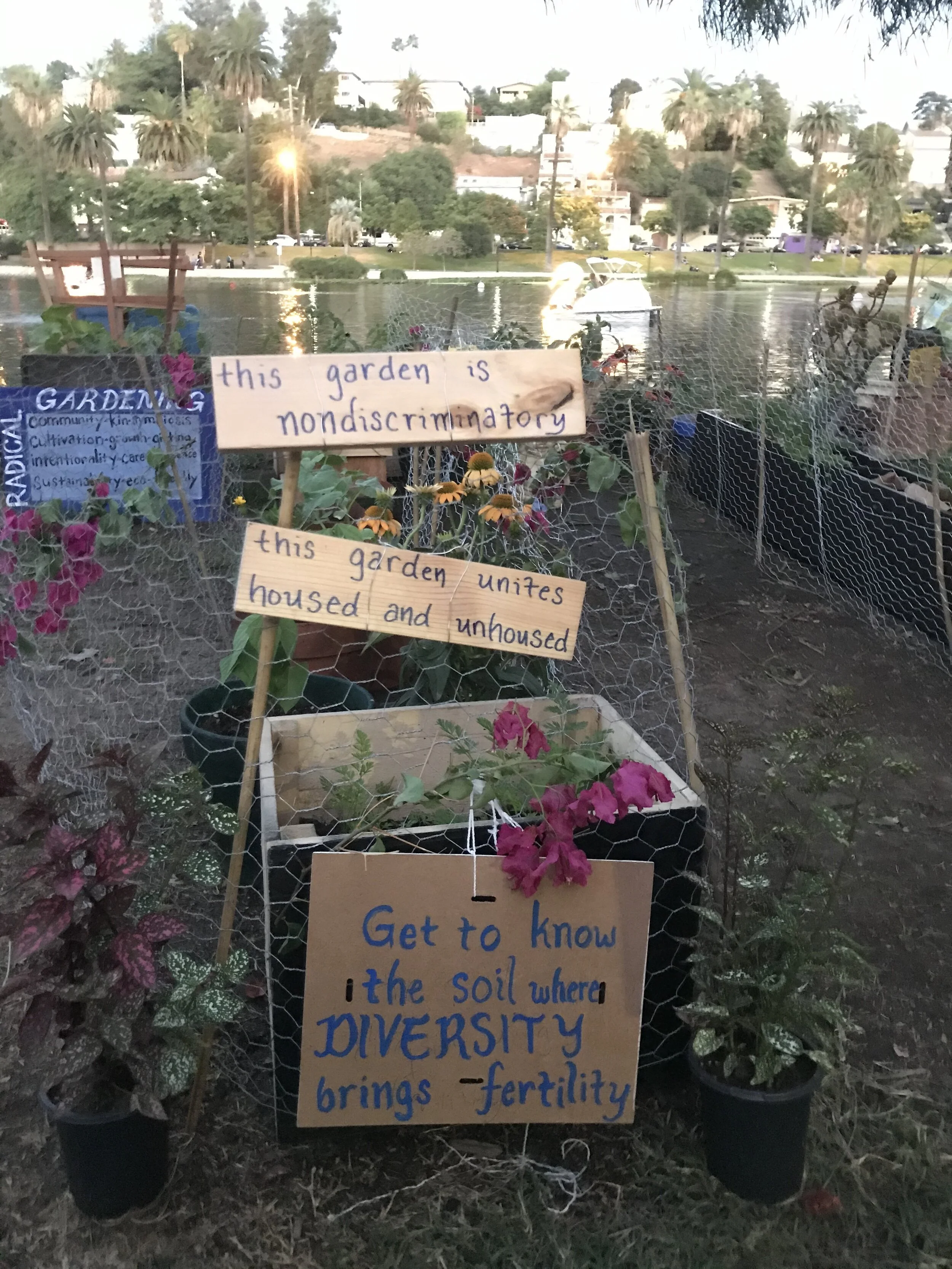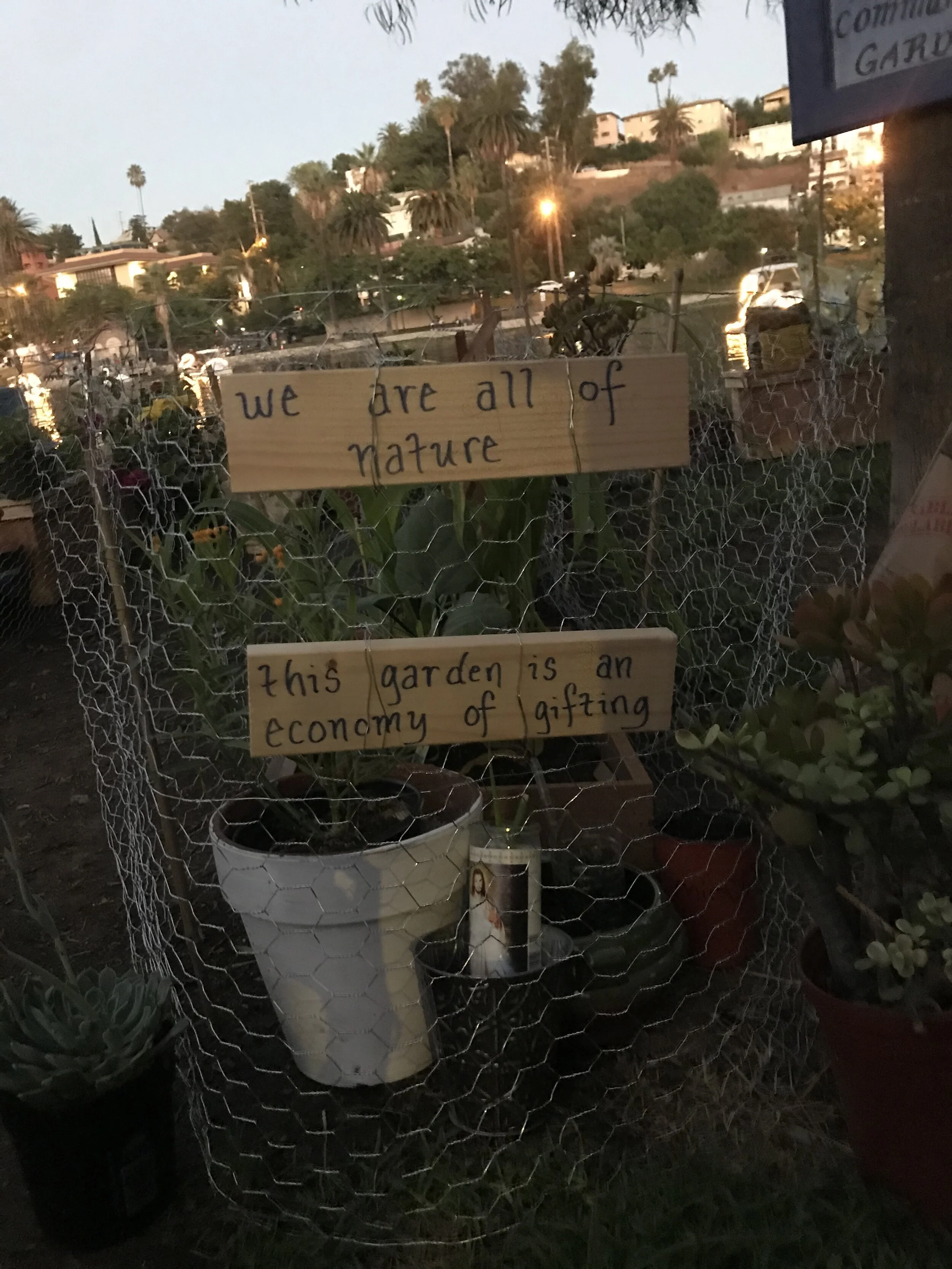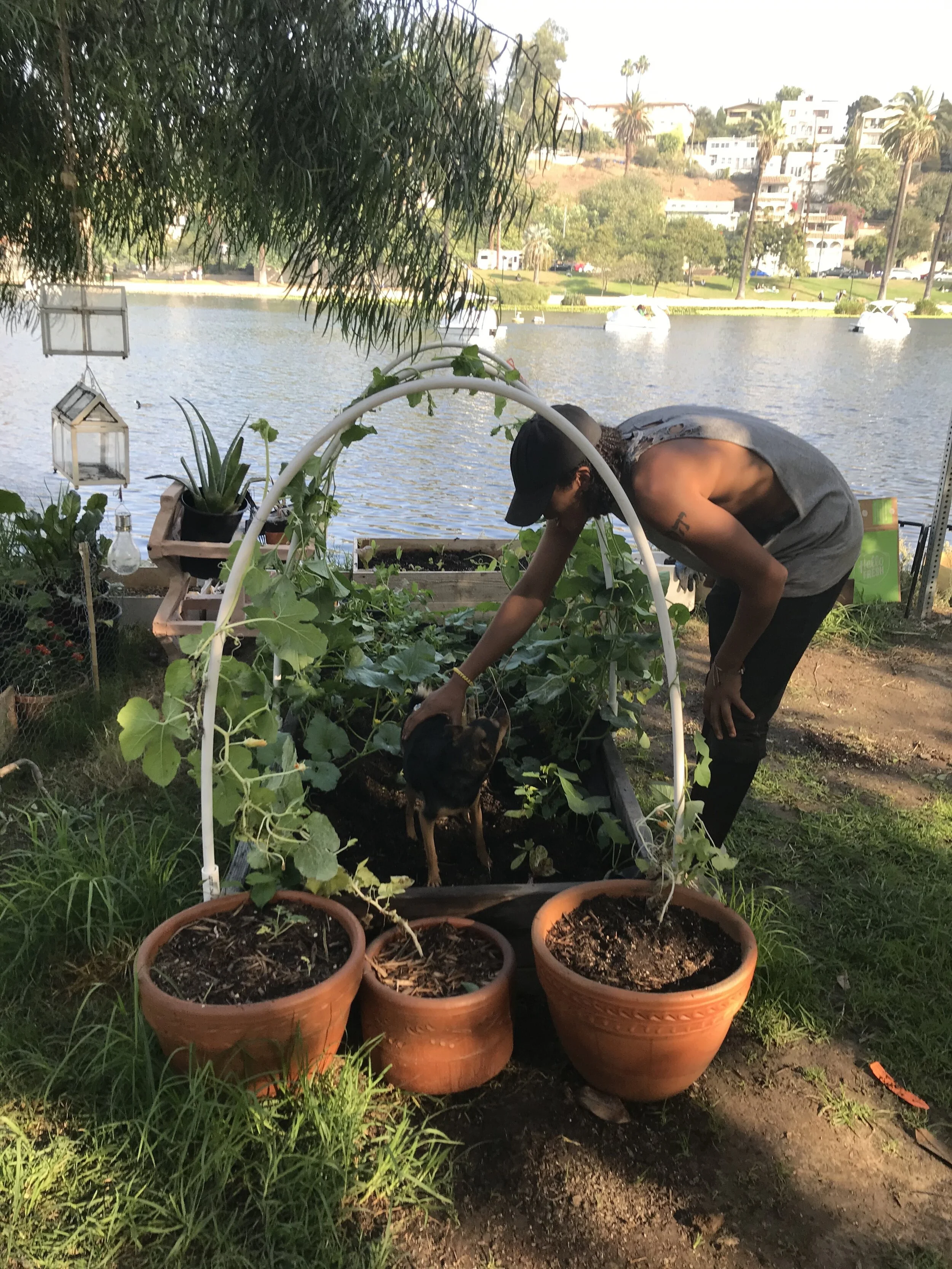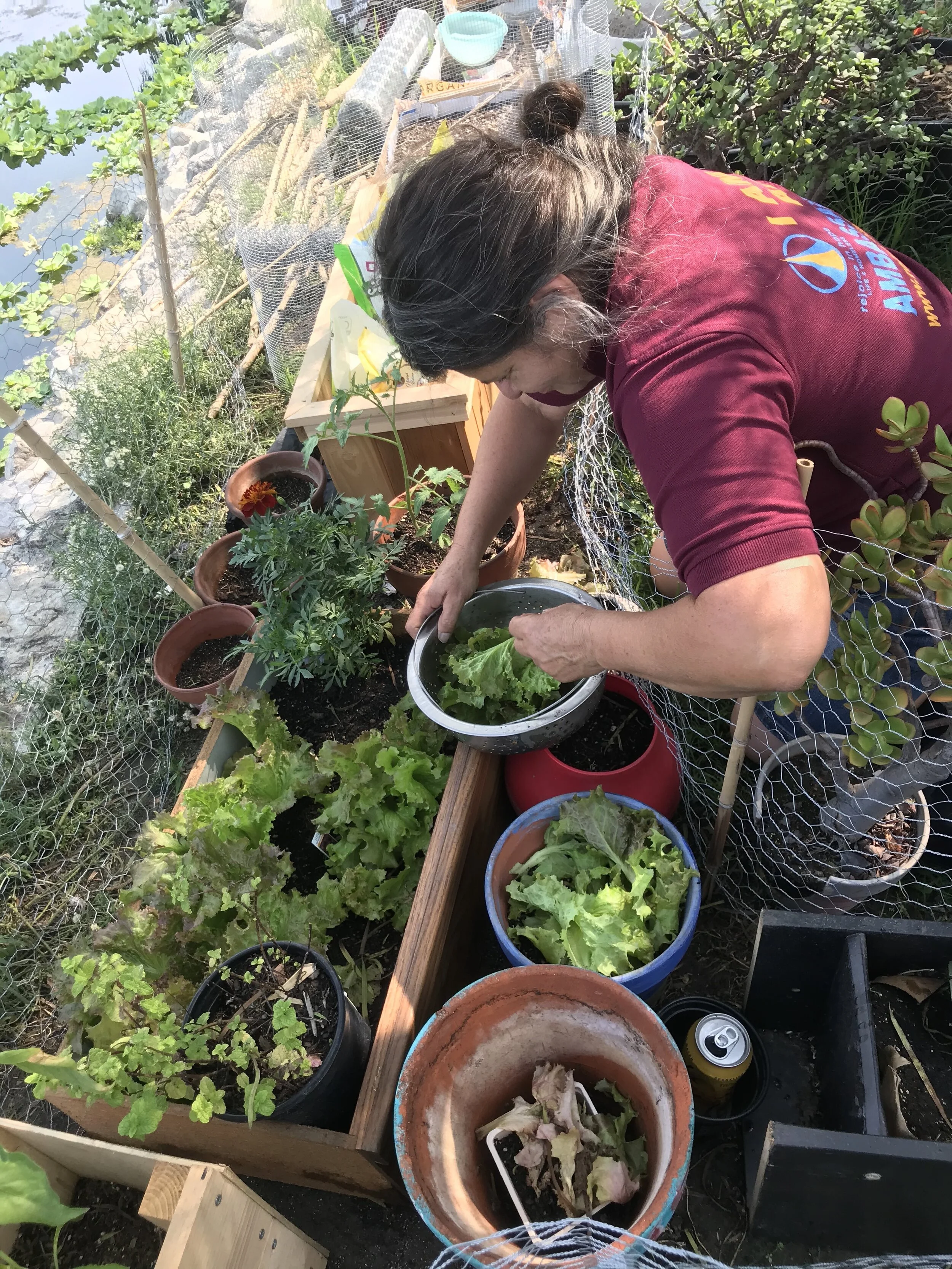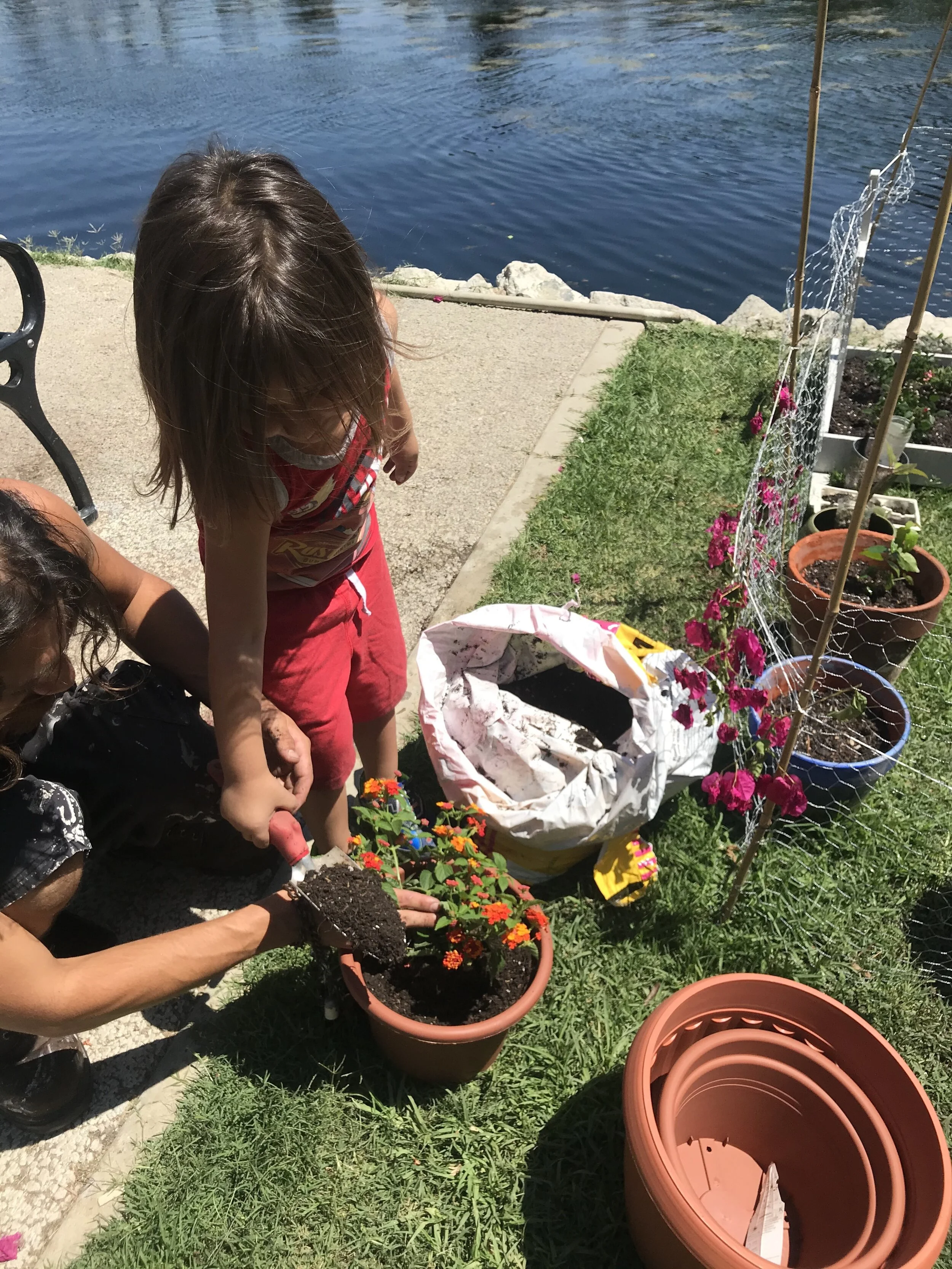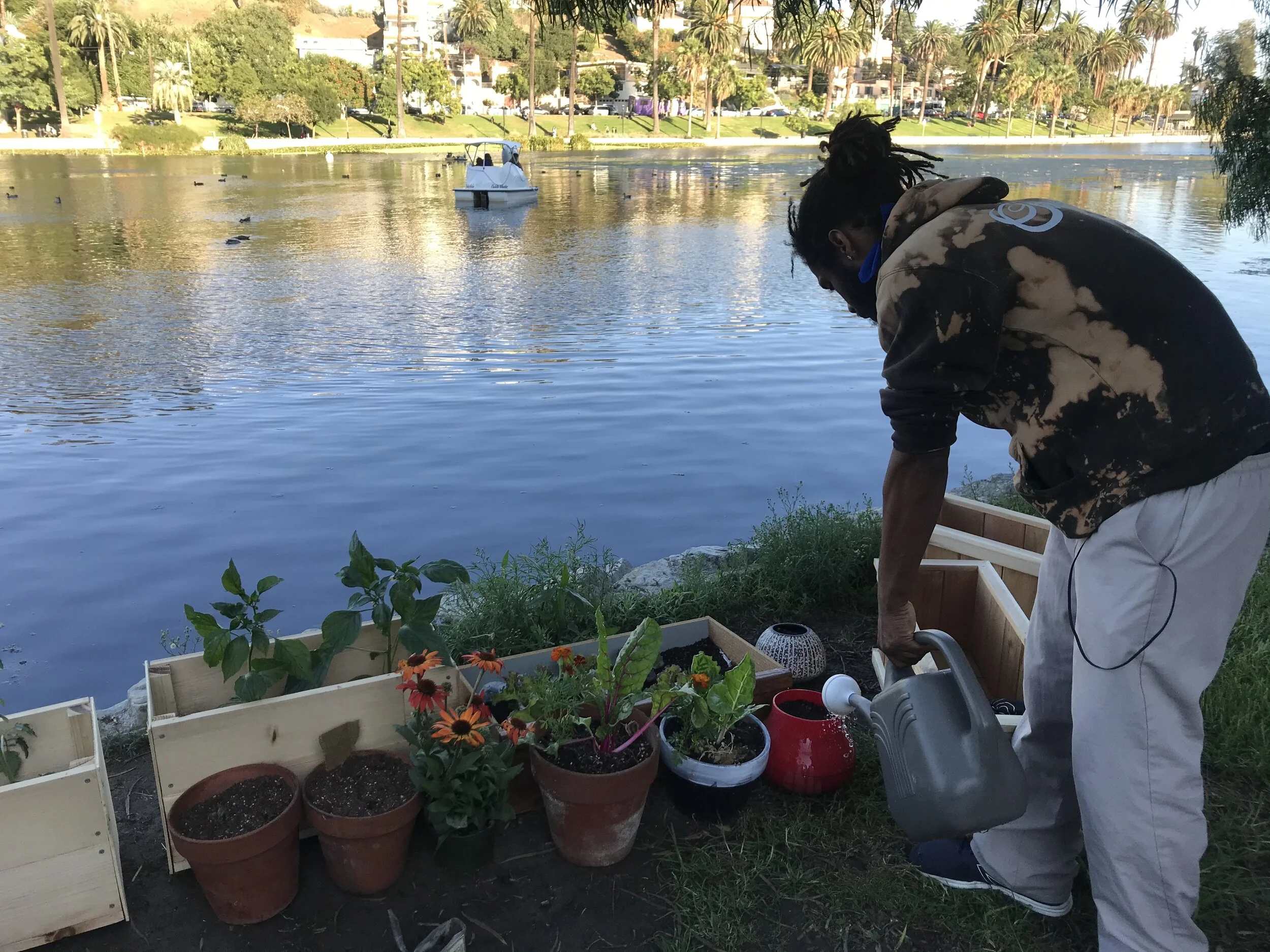RADICAL GARDENING
Radical Gardening was planted with houseless nieghbors in Echo Park, Los Angeles to build community and coexistence in a time of local encampment sweeps, global uncertainty, and ecological crisis. This garden rose up on the lawn-covered ground where an 18-year-old houseless girl, Brianna, died, her death never investigated due to lack of the city’s care. Building community from that very moment of dehumanization, building new life from death, Radical Gardening is the coming together and planting seeds with hopeful intentions, being present with the terra and with each other.
We planted this guerrilla garden in the middle of Echo Park Lake, a highly-trafficked, iconic place at the intersection of rapid gentrification and increasing houseless encampments. A place where it is illegal to start a garden without a permit – exclusive permits that are nearly impossible to obtain in a city where over 2,000 empty lots are hoarded by developers. A place where it is illegal to live, yet disenfranchised, houseless people continue to resort to tents as a result of housing insecurity, as Los Angeles holds the highest rate of homelessness side by side with some of the most expensive homes in the United States. It is a garden in the most polluted city in the US by ozone, a city built on freeways, as the population and amount of carbon monoxide-producing cars only continues to grow. In this garden there are flowers planted by people trying to get by while society rejects them, vegetables planted in a place marked by food scarcity and mental instability, and community planted against all odds. On top of the layer of this ground which has experienced violence, left undefended by the police, are grown native plants, seasonal vegetables, medicinal herbs.
This garden was not built by city planners or landscapers, but by artists, activists, plant-lovers who acted upon a neighborly need through blooming mutual aid. At first we were worried about starting a guerrilla garden in a place where the city could tear it down at any moment, but as our houseless friends and collaborators pointed out, that is how they feel about their own homes. The encampment of Echo Park Lake is an unprecedented one: tents and tarps are combined to make a communal living area, a kitchen, one tent serving for first-aid, the street lamps are tapped into for power, several of the folks even have jobs within the encampment - security, cook, cleaner - all at the threat of the city doing a “sweep” for “Operation Clean Streets” at any moment. As part of this community, the garden exists in the same space of uncertainty - its fate decided by the whims of those in power. Though it hangs in such precarious threads, the existence of this garden is an act of political resistance and renewed hope, a hope that the regenerative life and ecological coexistence provided by gardens can be accessed by all communities.
Grown from the erasure of edges and the rejection of land ownership, this garden has no entry gate. People come and go, contribute and harvest, build and prune, learn and teach, as they happen to pass by. At the start, I found furniture left out on the sidewalks to turn into raised beds and I made a community callout asking if any neighbors had anything to bring - whether extra soil, plant trimmings, a helping hand - and since then, every day someone brings something. Every day it grows, every day it has a different landscape. There are days when I teach the houseless folks about medicinal herbs, harvest days when a communal meal is made from the grown vegetables on the encampment burner stove, days when the plants are mysteriously taken, days when neighbors come with scavenged wood to build more raised beds, days when children plant seeds side-by-side with houseless neighbors, and almost every morning something appears from anonymous donors - soil, rocks, flowers, decorations, notes.
Something about this guerrilla garden has brought together community and hope in a time of isolation and hopelessness. Working together with plants has brought feelings of kinship to those who have been dehumanized by society. There were separate instances when a gentrifying developer and an LAPD officer told me how much they liked the garden, and then they were shocked when I told them that it is part of the houseless community. Could a community garden be a conduit for empathy of personhood?
Radical Gardening is the worlding of nondiscriminatory mutualism, the beneficial interdependence between beings, as it unifies housed and unhoused, humans and nonhumans. It is the greening of a polluting city amidst climate ache. An economy of gifting, where community-sourced contributions provide free healing food and resource sustainability. Gardening is a landscape of embracing presence amidst the uncertainties of crises. Listening to the plants, hands in the soil getting to know the life which grows. Learning the healing properties of each plant, each herb and the soil itself. Open access to build empathetic, caring relationships with each other, and within ourselves. Soil brings biodiversity, and it is that biodiversity that brings life and helps it thrive. The Capitalocene has brought sickness to the soil of the planet, a sickness that infiltrates our bodies. Soil turned into dirt and showered with chemicals, lack of care made manifest as diseases normalized underneath the skin.
But connecting back to the Earth and to each other through something like gardening is healing on so many levels, and this healing is not meant to be exclusive. Access to healing medicine, to nourishing food, to community care, to connecting with the Earth, is not meant to be exclusive. In this garden every seed was planted with intention, symbolizing a life that could be, no matter what ground it is starting from. Can we be this intentional with nurturing compassionate communities that go hand in hand with caring for our relationship with the earth?
What if the empty spaces, cracks, crevices of urban landscapes could be transformed into the potentials of nourishing mutual aid, learning to communally care for land, practicing sustainable coexistence? What if community gardens were funded instead of police? What if more community gardens were built instead of more prisons? What if vacant spaces shined as opportunities for communial growth and healing? What if inclusive gardens were written into urban plans and decentralized care and ecological awareness written into the architecture? We cannot depend on those in power to make these changes, rather it is our community efforts that make the changes. While systems of power fail us, we have each other, and we have to take care of each other, to take care of our home. We imagine a future where everyone can access a community garden and all the regenerative nourishment, care, and healing they can provide. Radical Gardening is this vision’s fertile soil.
-August 2020



